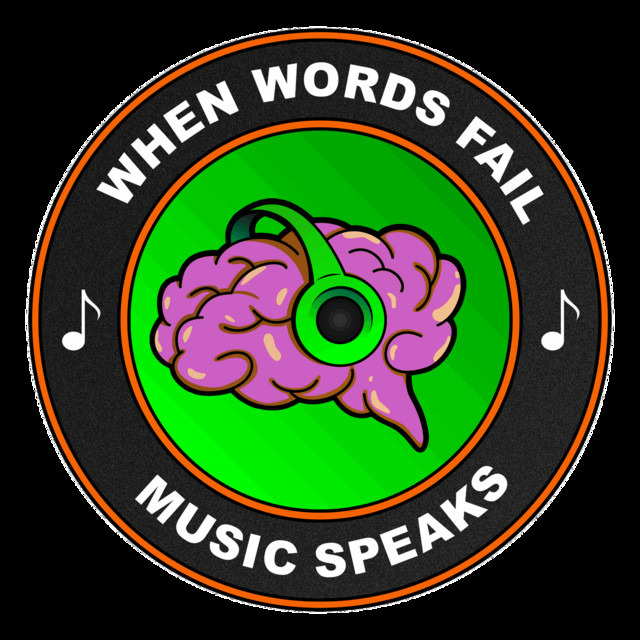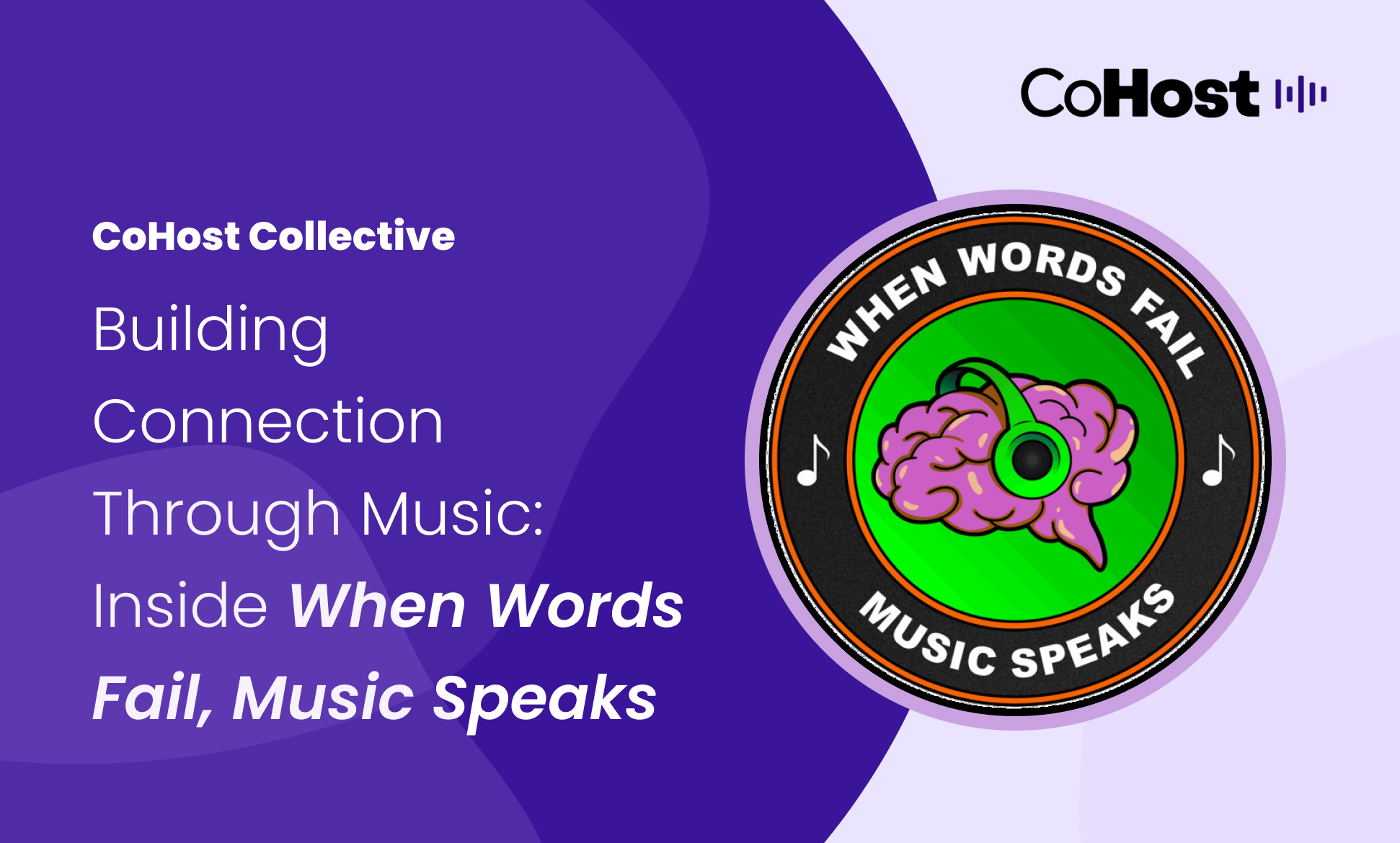
In this edition of CoHost Collective, we had the pleasure of sitting down with James Cox, host of When Words Fail, Music Speaks.
For James, every episode is an opportunity to bring people closer to the songs that matter most, whether through intimate interviews with musicians, conversations about mental health, or reflections on the melodies that shape our lives.
James shared insights about starting his podcast, the lessons he’s learned, and his advice for fellow creators.
Introducing James Cox and “Where Words Fail, Music Speaks”
James’ podcasting journey began years before When Words Fail, Music Speaks. “I had done some podcasting with my sister and by myself,” he recalls. “We even had one about disabilities. Then a friend suggested combining my knowledge of music with podcasting.”
That’s where When Words Fail, Music Speaks was born. The podcast explores how music helps with depression. James goes on to say, “I don’t think depression can ever be fully cured, but music helps—you forget your troubles when your favorite song comes on. We interview musicians from all over the world to share these stories.”
James’ passion for music was seeded early by his parents, particularly country music, which remains a cornerstone of his musical life. One day, he hopes to move to Nashville, the city at the heart of the genre he loves most, to get closer to the sounds that have shaped his life.
Memorable moments from Where Words Fail, Music Speaks
Some moments in podcasting are unforgettable, and for James, it’s the meaningful conversations that stand out. One early interview left a lasting impression: “I spoke with a man named Bill Protzmann, who shared that music had stopped him from committing suicide. That really speaks volumes. Knowing that our conversations can make a difference is why I do what I do.”
These kinds of moments remind James that podcasting is about more than just sharing stories—it’s about connection, healing, and impact. “Every episode is a chance to reach someone who might need it. That’s the reward,” he says.
Beyond the emotional impact, James also cherishes unique creative moments, such as discovering hidden gems, connecting artists with fans, and facilitating conversations that might’ve never happened elsewhere.
Lessons learned along the way
For James, success isn’t about download numbers or metrics—it’s about the impact of the work itself. “Don’t worry about numbers. They’ll come,” he says. “If you get too caught up in them, you won’t go anywhere. Don’t compare yourself to anyone else. You are on your own journey, and no one can do it for you.”
He emphasizes that a creator’s focus should always be on the content and the community. “If you worry about what others are doing or chasing the next trend, you won’t create what your audience truly needs. Your authenticity is what resonates with people, and that’s what matters most.”
James’ podcasting toolkit
Over the years, James has built a toolkit that keeps production smooth without distracting from the creative process. “I use Final Cut for video editing and Audacity for audio. Audacity is free, simple, and reliable, which is perfect for someone who isn’t trying to be a professional engineer. I also use AI programs to generate captions so our episodes are accessible even in noisy environments.”
But the tools are secondary. For James, the focus is always on the music and the stories. “Technology is a means to an end. It helps me tell the stories I care about without getting bogged down in the technical stuff. At the end of the day, the technology is just a means to an end. What really matters is the story you’re telling and the music you’re sharing.”
Connecting with music lovers
Building a community around the podcast is important to James. “I try to involve listeners on Instagram by asking questions like, ‘What’s your favorite Halloween song?’ or ‘What song makes your summer complete?’ It keeps the audience engaged and makes them part of the conversation.”
Though time and resources are limited, James believes that any effort to connect directly with listeners strengthens the bond between the music and its audience. “It’s about creating an experience, not just publishing an episode,” he says.
After all, listeners don’t just return for the music but for the connection, the shared moments, and the sense of belonging that James creates week over week.
A creator James admires
James looks to other creators for inspiration, particularly those who use their platforms to raise awareness and foster understanding. “Sam Mitchell from Autism Rocks and Rolls does a fantastic job of bringing autism into the public eye and interviewing meaningful guests. That’s really inspiring to me.”
Keeping up with James and When Words Fail, Music Speaks
James leaves fellow creators with a simple but powerful message: “Focus on yourself, focus on your brand, and don’t compare yourself to anyone. You’re on your own journey, and only you can tell your story the way it needs to be told.”
Remember to check out When Words Fail, Music Speaks wherever you get your podcast, and keep up with them over on Instagram and Facebook.




.webp)

